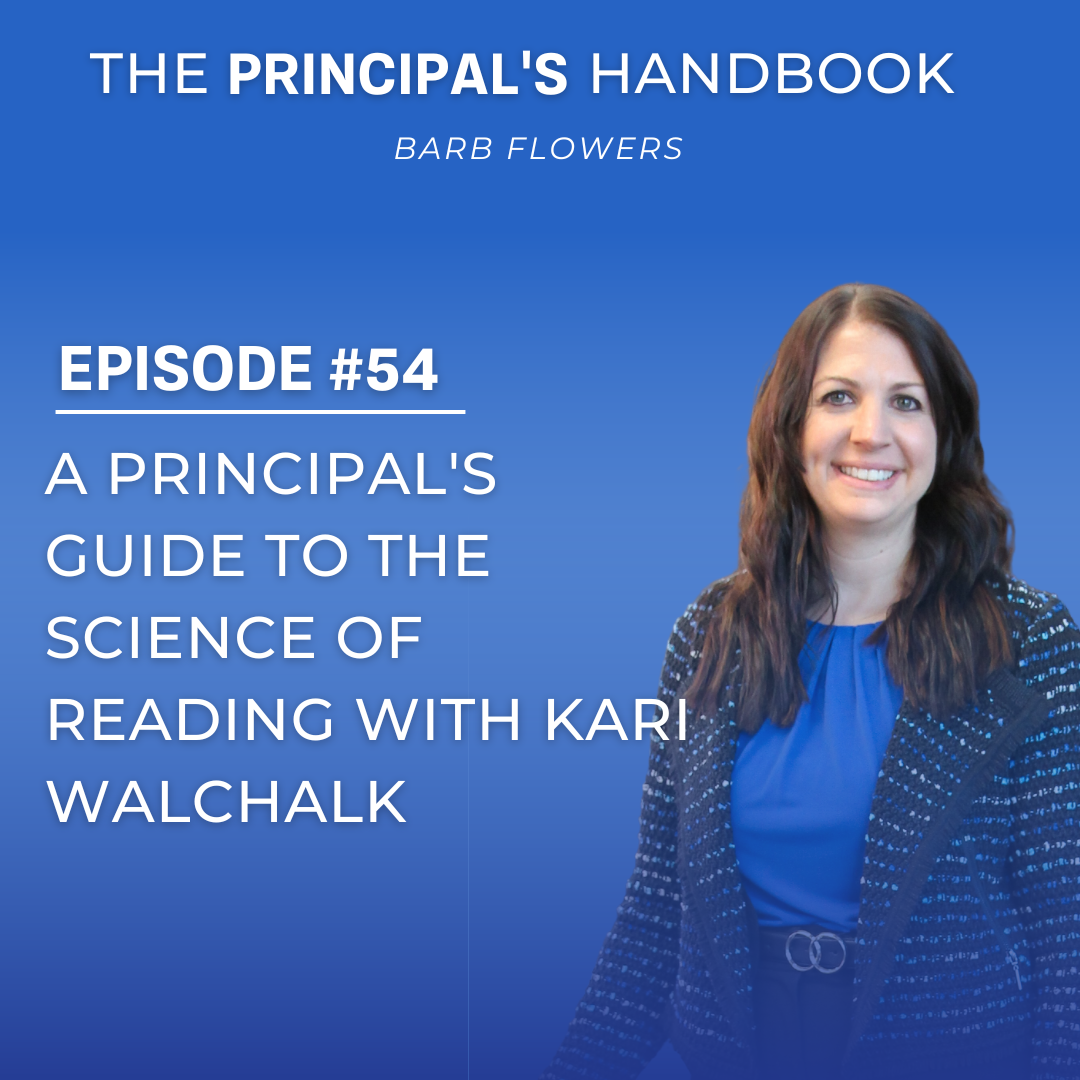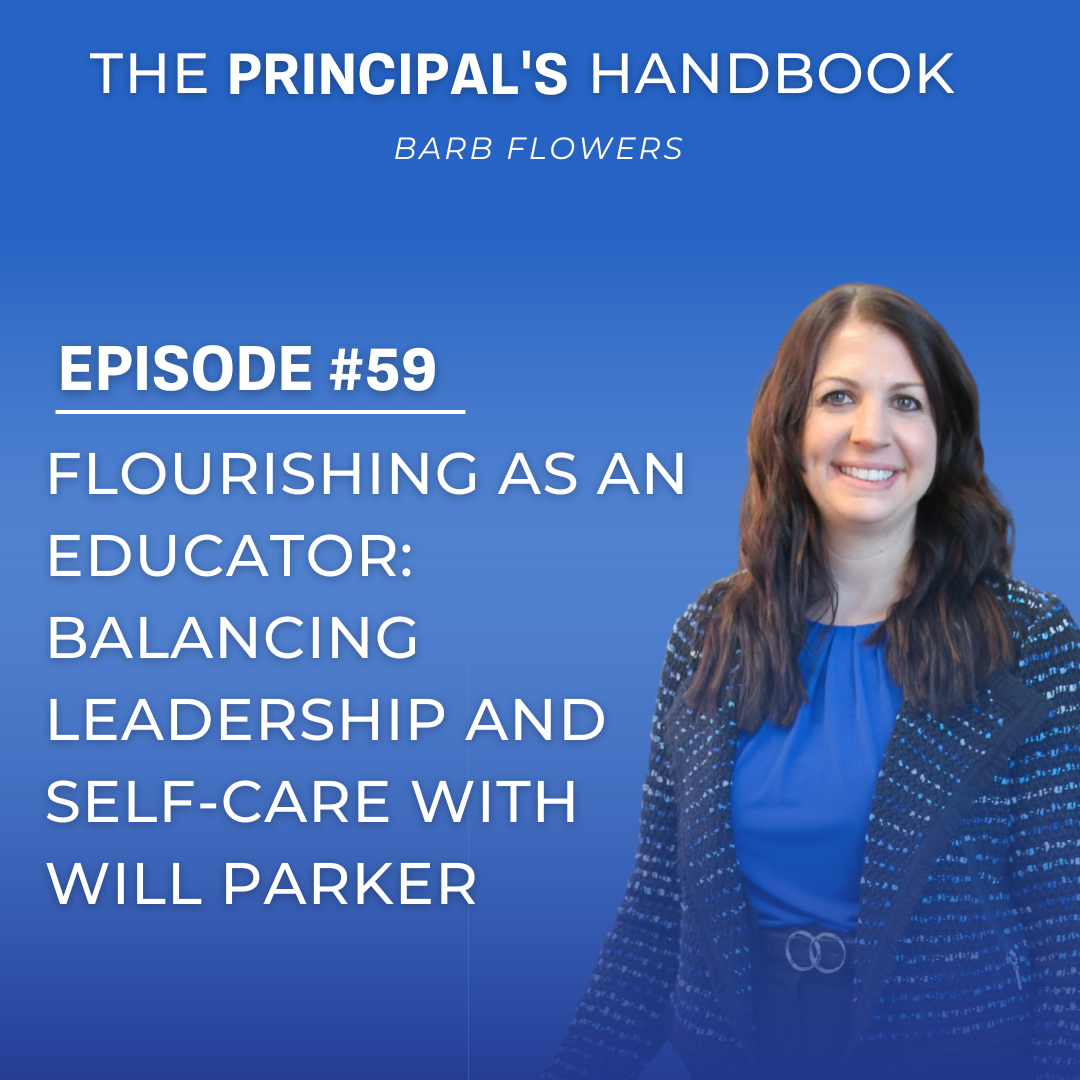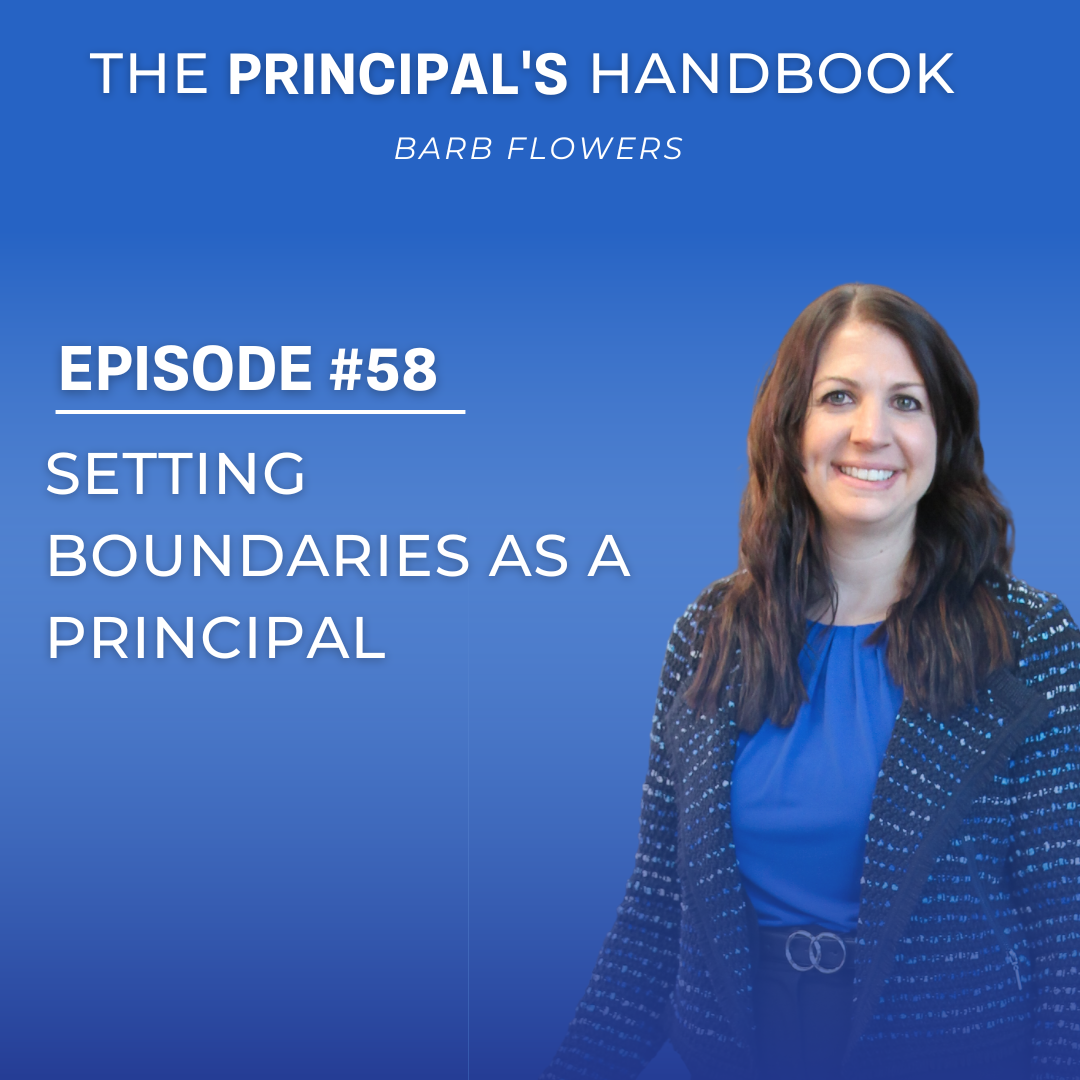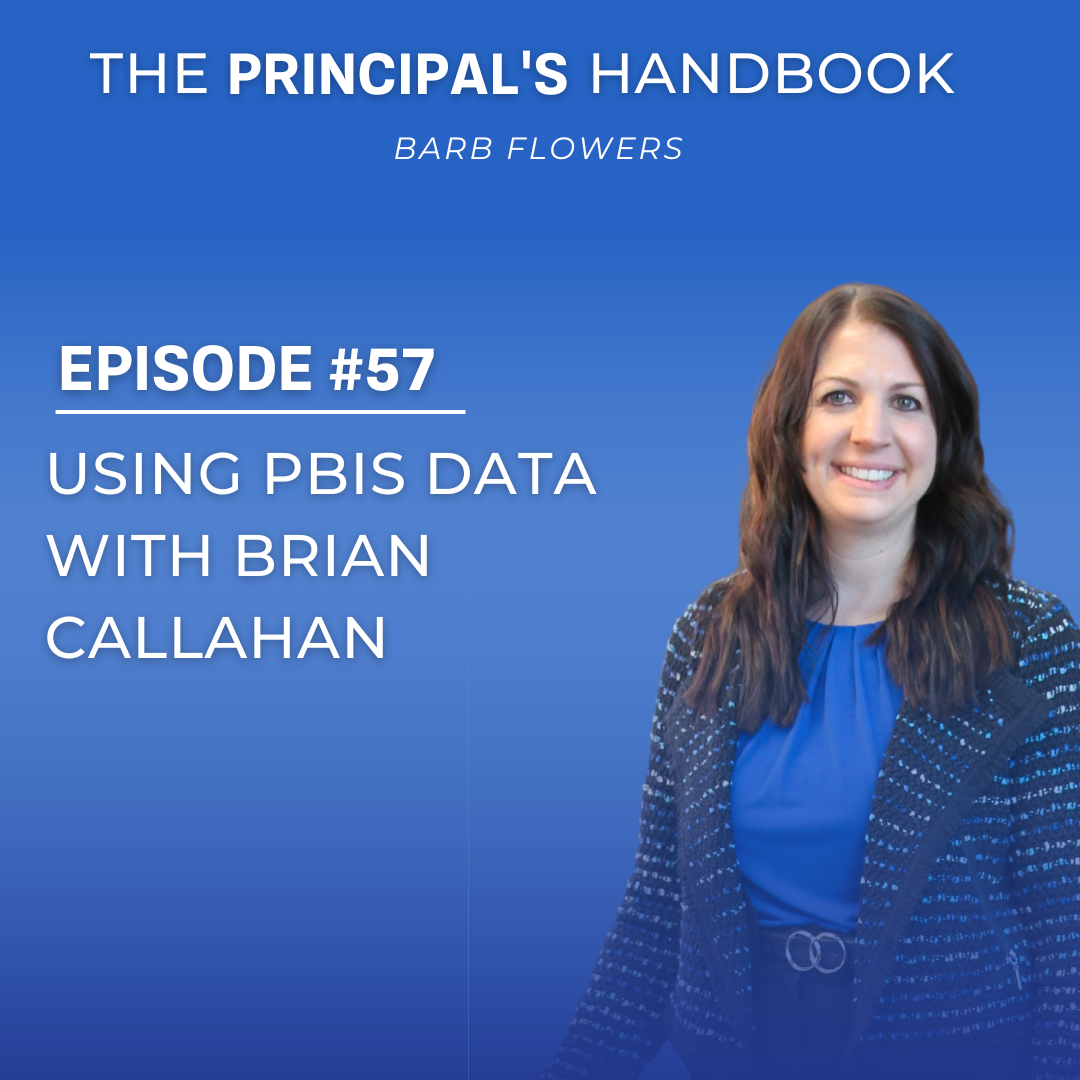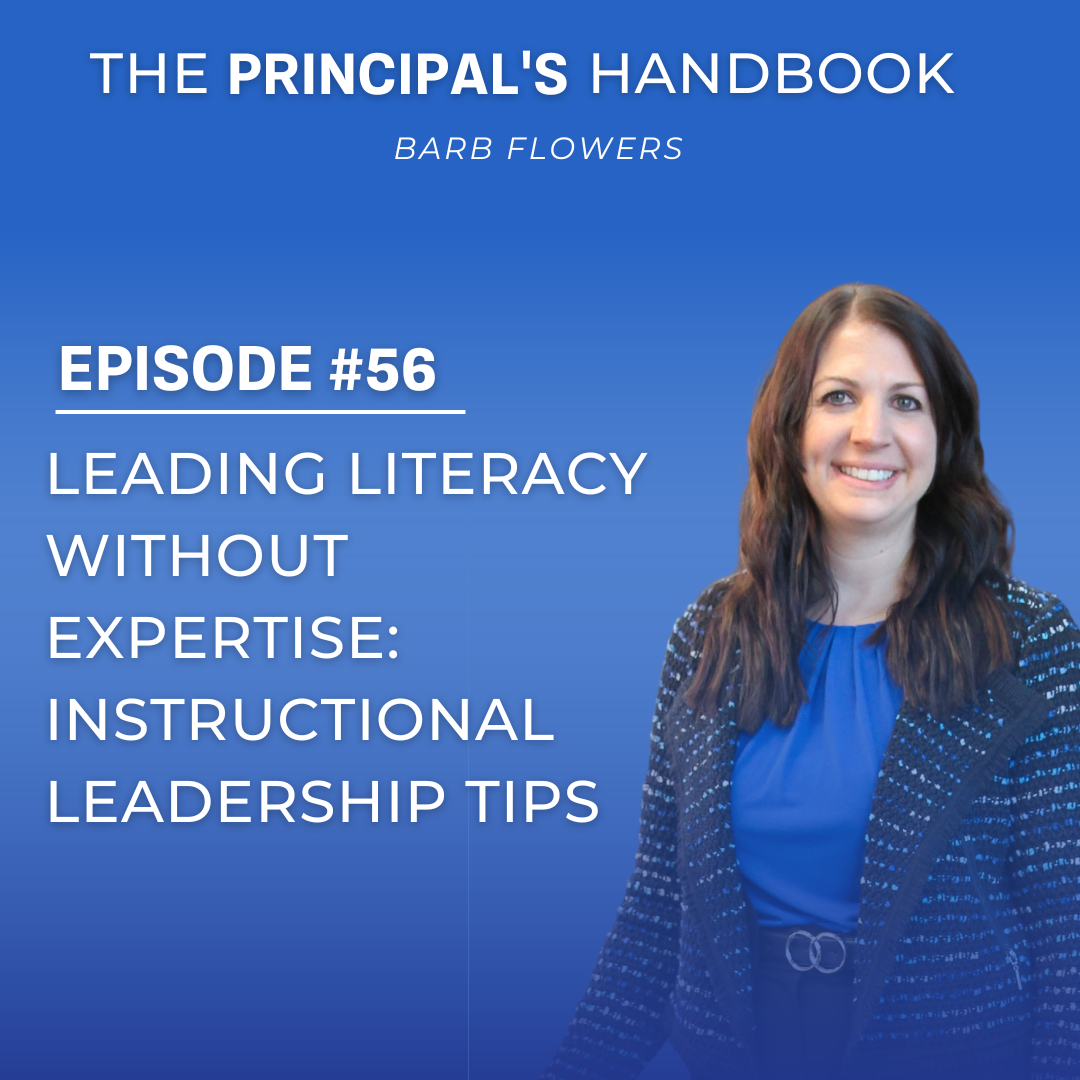[00:00:00]
This episode is part of the National Literacy Month with RAF campaign, a partnership with the Bee Podcast Network and Reading is Fundamental to host numerous productive conversations across our network of podcasts about developing kids’ reading and literacy skills for life.
Welcome to the Principal’s Handbook, your go-to resource for principals looking to revamp their leadership approach and prioritize self-care. I’m Barb Flowers, a certified life coach with eight years of experience as an elementary principal. Tune in each week as we delve into strategies for boosting mental resilience, managing time effectively, and nurturing overall wellness. From tackling daily challenges to maintaining a healthy work-life balance, I’m Barb Flowers. We’ll navigate the complexities of school leadership together. Join me in fostering your sense of purpose as a principal and reigniting your passion for the job. Welcome to a podcast where your wellbeing is the top priority.
Well, welcome everyone to the podcast today. Our guest is Kari Walchalk, who was actually a teacher when I was a principal. So I’m excited to have her on the podcast. She was a Title I teacher in my time as a principal and later became a literacy coach for the district, which was an exciting role for us. During my time working with Kari, she introduced me to the science of reading, and we got to roll that out in the building together. It was a lot of great times and valuable literacy learning. I’m very excited to have her on the podcast today. Kari has done a lot of professional development and growth in this area and is incredibly knowledgeable.
So we’re going to ask her a lot of questions, and I’ll also provide her contact information at the end if you’d like to reach out to her. She loves talking about the science of reading, so let’s dive in. Kari, if you’d like to start by giving a little bit of background about how you became interested in the science of reading, I’d love for you to share that.
Kari:
Thank you for that wonderful introduction. My interest and growth in the science of reading came when I was working in Title I. Of course, we were working with small groups, trying all different types of strategies and interventions. Then, I got the opportunity to attend an International Dyslexia Association Northern Ohio branch workshop for an entire day. The speaker at the time had published a book on functional MRIs and how they could actually see inside the human brain during a task like reading. She showed us MRIs of a child who received a certain type of intervention, and it literally changed the brain—the parts of the brain that lit up changed and aligned more with a typical reader, compared to a dyslexic reader. They started with a dyslexic brain scan, provided the intervention, and then the brain changed. It blew my mind, and I thought, “What do we have to do to change brains?” I didn’t even know that was possible.
Through the International Dyslexia Association’s resources and website, we started diving into it. I also attended another workshop in Columbus where David Kilpatrick spoke about the brain’s processes while reading. It was then that I discovered one missing piece: phonemic awareness. I thought, “How come I didn’t know this?” That realization started a deep dive for myself and a few colleagues. We realized it made total sense, so we had to get educated and start the movement.
Barb:
That’s amazing. So, what tips do you have as an instructional leader for principals to effectively lead literacy initiatives in their schools?
Kari:
I think principals need to create opportunities where teachers have time to actually learn. This could be through book studies, attending workshops, or PD days where teachers can get together, look at their data, drill down into weak areas, and share strategies across classrooms and grade levels. Principals should also encourage risk-taking—trying new things without fear of criticism. We’re all in this together, and there shouldn’t be a penalty for trying something new because that’s how we learn. We learn from our mistakes.
Principals can also help teachers choose appropriate assessments that reflect changes in instruction. For example, if we don’t see progress in our progress monitoring, we need to change the instructional strategy.
Barb:
Absolutely. I also want to emphasize that, as a principal, if you don’t know something or don’t know how to work with your teachers on a specific topic, find someone who can help. One of the reasons I brought Kari on is because, as a principal, I felt comfortable teaching reading, but when the science of reading emerged, things changed. I had to be open, curious, and willing to learn. I reached out to Kari, who was already a wealth of information, constantly researching and learning, and providing guidance to teachers. It’s crucial to partner with knowledgeable people like that in your building to support teachers.
Kari:
Exactly. Having teacher leaders in your building who can support their colleagues is incredibly valuable. These teacher leaders can act as go-to resources, do model lessons, and facilitate group learning. It’s about creating a help-oriented environment where teachers feel comfortable asking for help without judgment.
Barb:
We also implemented a system where our Title I teachers went into classrooms, used a push-in model, and provided ongoing PD for classroom teachers. This was incredibly beneficial because teachers got to watch others teach explicitly in ways they hadn’t before. It was like PD in their own classroom, and they were learning as they worked with the Title I teacher.
Kari:
Exactly, and when teachers see what works and have the opportunity to implement it themselves, it builds confidence and ensures that everyone is on the same page.
Barb:
Right. Now, with all of the information out there on the science of reading, how can principals educate themselves without becoming overwhelmed? And how can they avoid overwhelming their teachers?
Kari:
Podcasts are definitely beneficial because they’re short, and you can listen while driving or during a break. But it’s important to choose reliable resources. I highly recommend the Reading League and Tim Shanahan’s blog—they offer research-based, short reads that summarize key information. Anita Archer also has great instructional strategy videos that are focused and concise. As a principal, focus on one or two elements at a time. Don’t try to overhaul everything at once. Look at your data and target the lowest-level skills first. Focus on one piece of the puzzle, get that right, and then move to the next.
Barb:
I love that approach. It’s easy to get overwhelmed, but breaking it down into smaller chunks makes it so much more manageable.
Kari:
Yes, and when you focus on those smaller pieces, it’s much less overwhelming. For example, look at the initial skills like letter naming speed or phoneme segmentation before moving on to more complex tasks.
Barb:
So important. Now, what role should principals play in ensuring that evidence-based reading practices are consistently implemented across all classrooms?
Kari:
It all starts with data. When conducting walkthroughs or observations, principals should ask questions about the strategies teachers are using and how they align with the science of reading. If progress isn’t being made, it’s important to sit down with the teacher and reflect on instructional strategies. It’s about ensuring that the strategies are both effective and efficient.
Barb:
Exactly. Accountability doesn’t have to be a negative word. It’s all about holding ourselves and our staff accountable for doing things that work. It’s about making sure that every strategy we use is actually contributing to the success of our students.
Kari:
Yes, and it’s about ensuring that everything we do is done with fidelity. If we’re not doing something as it’s intended, we can’t expect to see the results.
Barb:
Absolutely. Well, thank you so much for being here today, Kari. There were so many great insights.
Kari:
Thank you for having me!
Barb:
If you’d like to reach out to Kari, I’ll put her information in the show notes because she is a great resource. Also, check out our previous podcast on the Science of Reading for more helpful resources.


